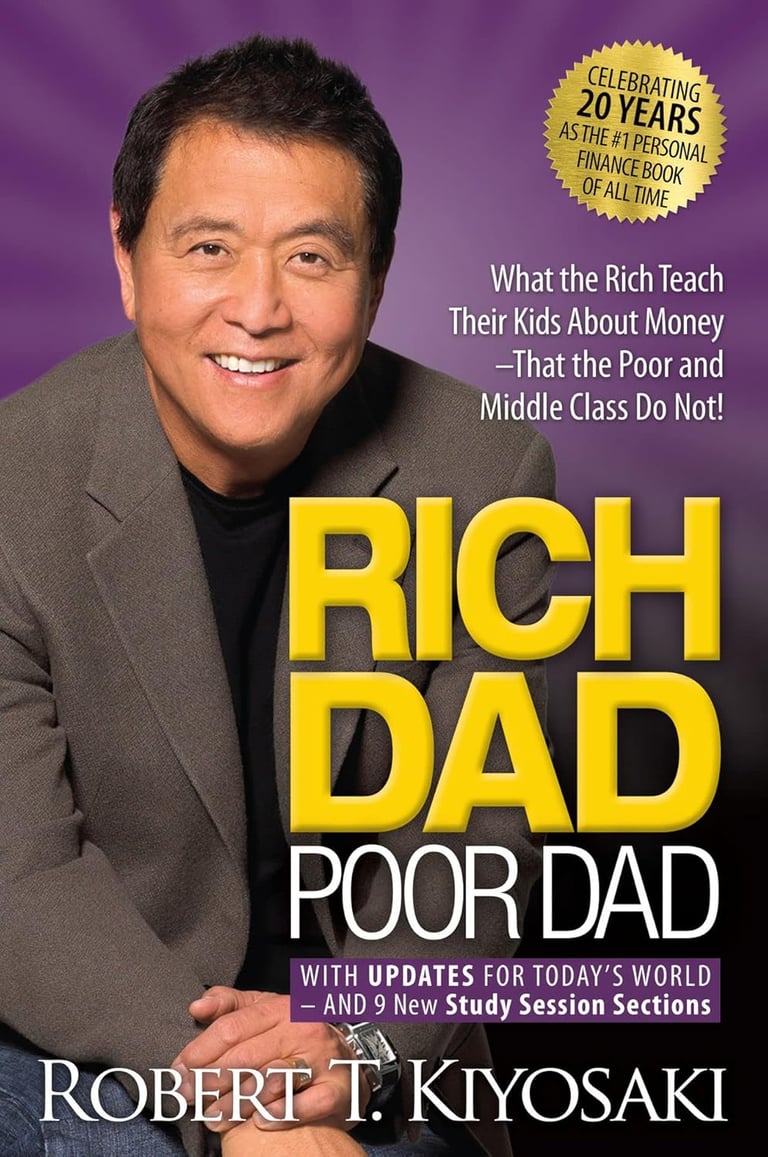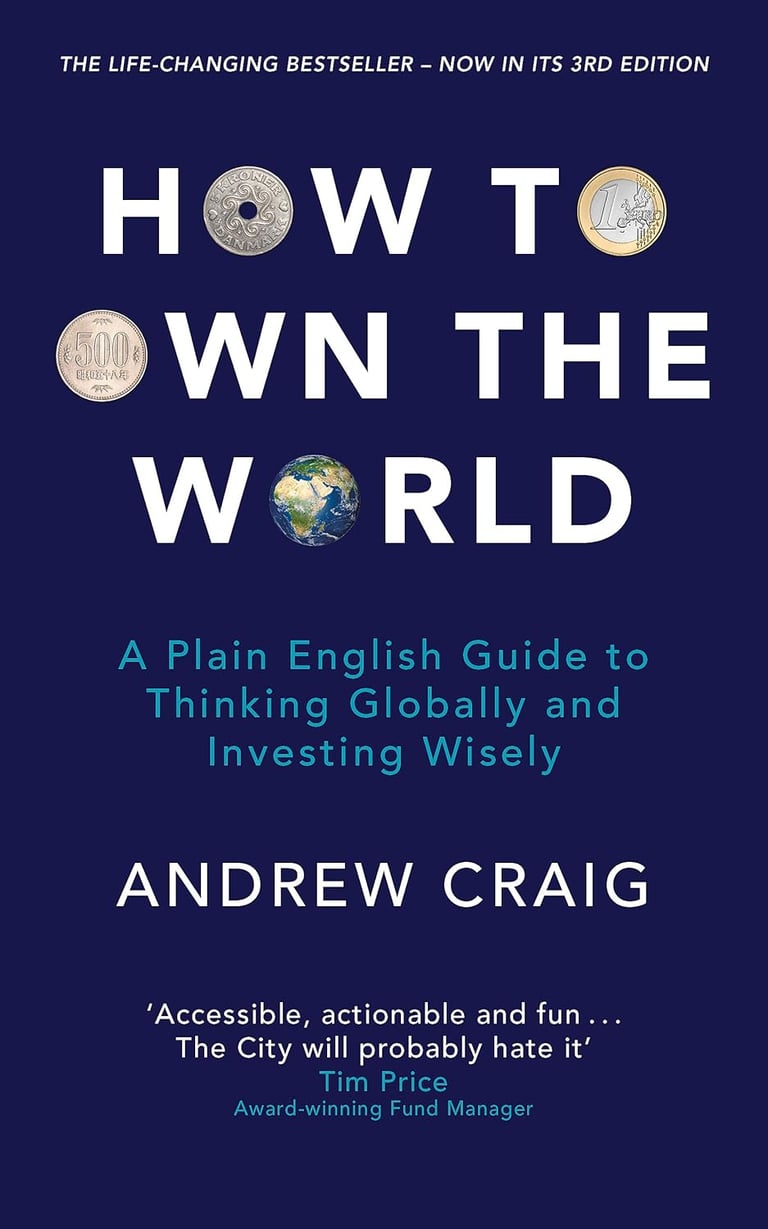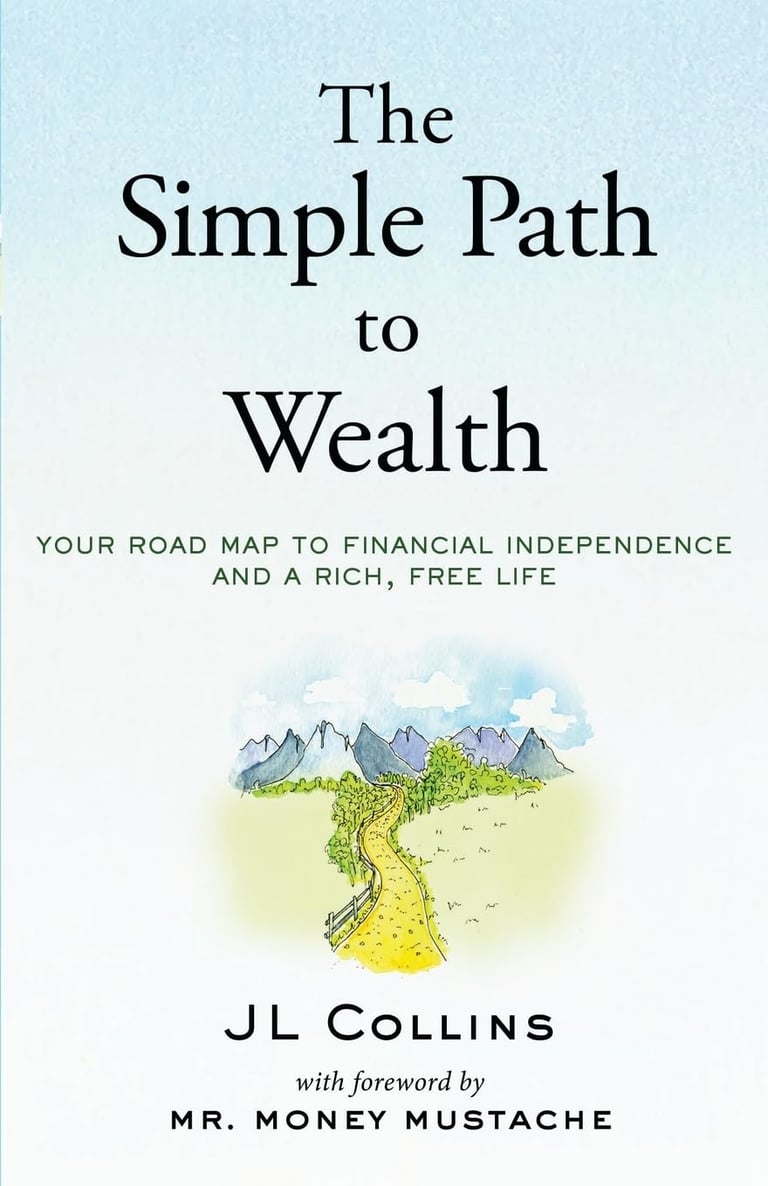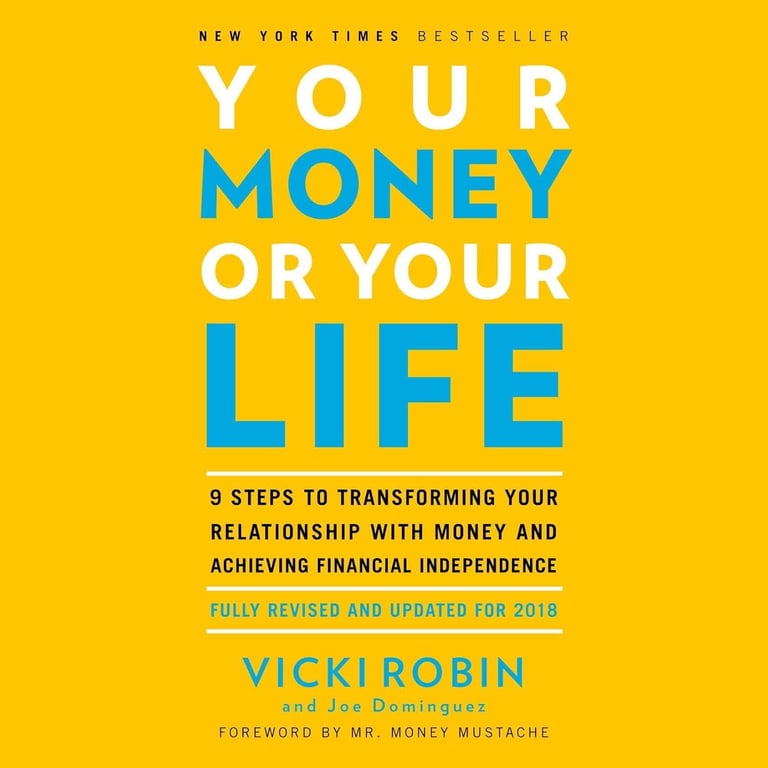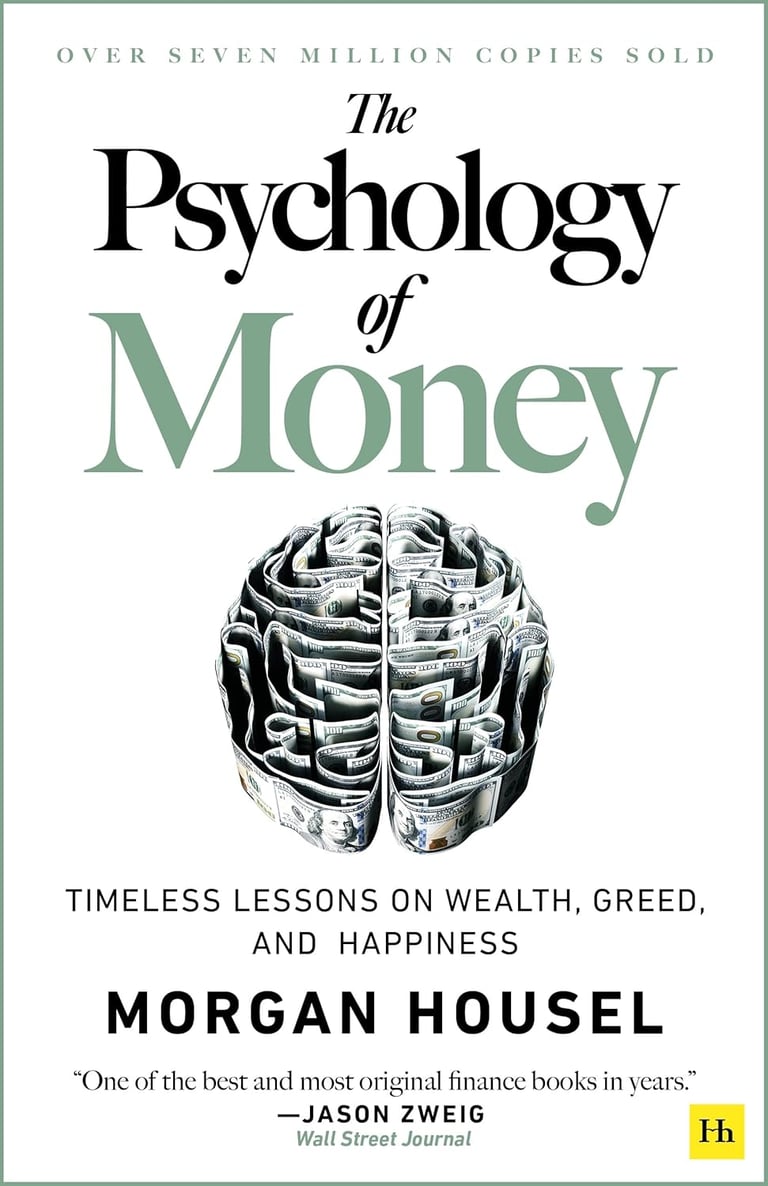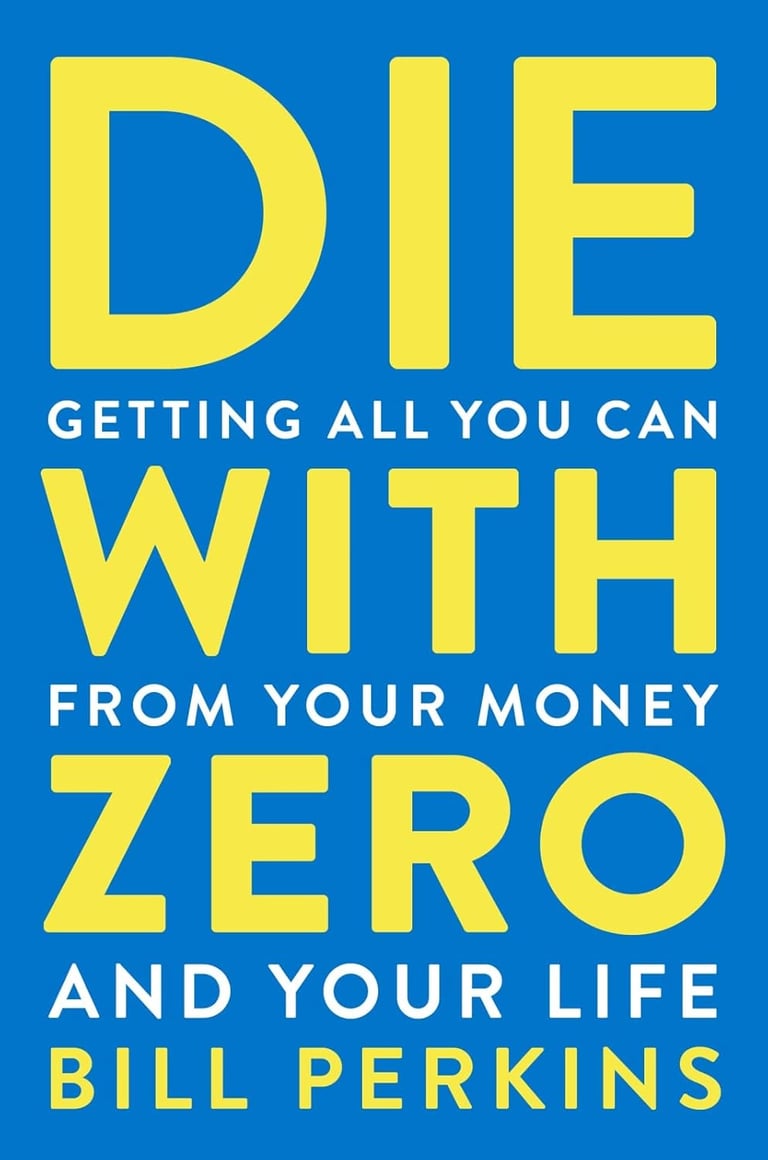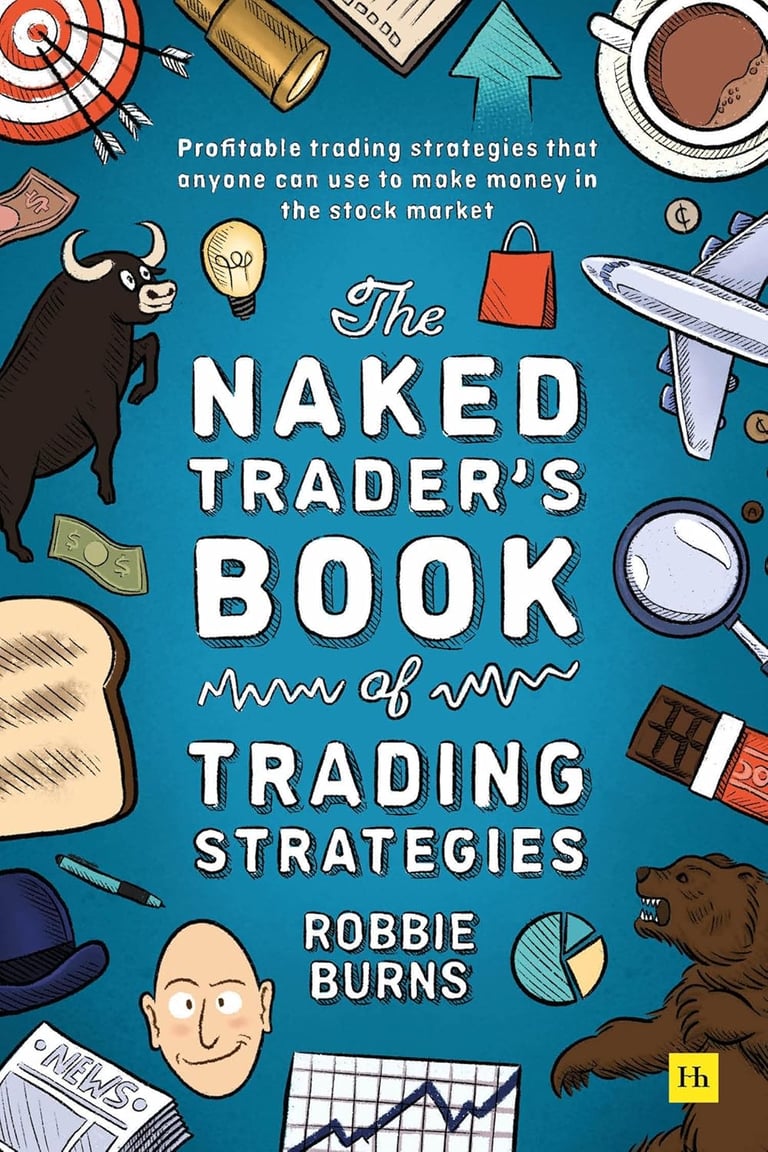Book recommendations to plan for early retirement
One of my interests is to learn how to retire years, if not decades, earlier than typical retirement age. Here I recommend some of the books that I have read and found inspiring and why.
FIREBOOK CLUB
Thru
6/14/202513 min read
Disclaimer: This post includes affiliate links. If you click these links, it will not affect the price of the product but if you choose to purchase the recommended product, I receive a small commission to pay towards the upkeep of this website. Thank you.
I read quite a lot of books, but I especially listen to a lot of audiobooks. These tend to be books about real people, real stories or books on personal growth and learning. One of the subjects I've been particularly interested in lately is the subject of FIRE - Financial Independence Retire Early. The books I suggest below are absolutely excellent. I found them really insightful and thoroughly recommend all of them.
The book recommendations below are not organised in the order of "best to worst" but in the order of which I think you should listen to them / read them in order to benefit the most from their content without feeling too overwhelmed (especially if you're just starting to dip your toes into the world of personal finance).
Rich Dad Poor Dad by Robert Kiyosaki
How to Own the World by Andrew Craig
The Simple Path to Wealth by JL Collins
Your Money or Your Life by Vicki Robin and Joe Dominguez
The Psychology of Money by Morgan Housel
Die with Zero by Bill Perkins
I would say that Rich Dad Poor Dad should be read by all regardless of where you are in your life. Likewise, How to Own the World is really accessible for beginners. However, neither book really tells you how to properly get started with the journey of financial independence, just the concepts behind it. Once you get to The Simple Path to Wealth you will really truly appreciate the incredible, in fact mindboggling potential of low cost global index funds and compound interest from these, when given long enough time. You'll be amazed by how simple it is, this is a must-read book. The next book then re-inforces what has been said in previous recommended books but also takes a look at consumerism and how to avoid falling into that trap to live a better life.
Once you've started your personal finance journey, you should most definitely read the book The Psychology of Money, because you will have to be able to gain the mental strength to cope with volatile markets and the book really helps with that. The last book is one you can get on to once you've started your journey, you've started seeing the benefit of improving your personal finance and you've really grasped the potential for your money ballooning over time - now you just have to make sure you enjoy your life while you got money, your health as well as your loved ones around you. This one comes last, but is also one of the most important ones. However, if you're in a place where you think you'll never ever have any money to do anything (the previous books will fix that mentality), then you will just think "this is completely irrelevant to me". That's why it's the last book on the list.
Free personal finance course (no, it's not a scam)
If you're very new to financial education or you find the concepts in the below books hard to grasp, I thoroughly and whole-heartedly recommend you check out the Rebel Finance School. It is a free personal finance course that's run by a young, wonderful couple that reached financial independence in their late 30's by the exact same means as explained in all these books that I recommend.
As they don't need to work anymore, one of their missions in life (for now at least) is to teach others how to get their finance in order. If you're in the darkest pit of debt and you don't feel like you'll ever see the light, attending their course will definitely help you climb out of that pit. Likewise, if your finances are pretty good and you'd like to not have to work until you're 67, they'll teach you how to achieve financial independence and retire early.
They run the course on Zoom in the evenings once a year but the recordings are also available on YouTube on catch-up. Please do check them out, and if you know of anyone in financial struggles, or someone who could just generally benefit from the free course, let them know about it. But just know that, as I have found out, "you can lead a horse to water, but you can't make it drink".
#1: Rich Dad Poor Dad by Robert Kiyosaki
While this book takes a somewhat old fashioned approach, it is still a very inspiring book, particularly if you have been raised in a family or an environment where people are generally not very smart with money and gives you hope and inspiration to do better. It is a widely influential book that reshapes how people think about money, education and financial freedom. Through a simple narrative comparing the financial philosophy of his “rich dad” (his best friend’s father) and “poor dad” (his biological father), Kiyosaki highlights the contrasting mindsets that lead to wealth versus financial struggle. His “poor dad” follows the conventional path: work hard, get a stable job, and rely on a paycheck. Meanwhile, his “rich dad” teaches him to think like an investor and entrepreneur, emphasizing the importance of financial education, taking calculated risks, and building assets that generate income.
The book’s key lessons revolve around shifting from being an employee to becoming financially independent by acquiring assets—such as real estate, businesses, or investments—that produce passive income. Kiyosaki stresses that schools teach academic and professional skills but rarely cover financial literacy, which is crucial for long-term success. He urges readers to understand the difference between assets and liabilities, avoid consumer debt, and use money as a tool rather than a goal. While the FIRE community would generally disagree with his wealth-creating strategy, which includes purchases individual stocks, the creation and management of businesses and ownership of properties for rent, while the FIRE strategy is super simple: Own the whole world through low cost global index funds, the main principles still apply: Avoid debt, understand what liabilities are and maximise assets to be able to become financially independent. Rich Dad Poor Dad serves as both a motivational and practical guide for those who want to break free from the paycheck-to-paycheck cycle and start building lasting wealth through smarter financial choices.
Get the book on Amazon:
#2: How to Own the World by Andrew Craig
How to Own the World by Andrew Craig is an accessible and empowering guide to personal finance and investing, aimed at helping everyday people take control of their financial future. Craig argues that financial literacy is not just for the wealthy or the elite—it's a basic life skill that everyone needs but is rarely taught. The book makes the case that understanding how money works, how global markets function and how to invest wisely is essential in a world where pensions are shrinking, living costs are rising, and financial independence is increasingly up to the individual. It is a wake-up call for those of us who haven't saved up for our retirement and a stark reminder that if we don't start now, we might be facing living in poverty in our old age.
Craig encourages readers to become “their own wealth manager” and shows that building long-term wealth is achievable with the right mindset and tools. The key lessons of the book revolve around diversification ("own the world"), long-term thinking and global awareness - in the sense that you shouldn't rely on the current superpowers necessarily being the superpowers of the future, you should invest globally. Craig explains how to spread your investments across a range of asset classes—including shares, property, and commodities—so you’re not overly exposed to one market or country (by using global index funds). He also debunks common myths about investing being too complex or risky for beginners, advocating for low-cost, global investment strategies that are simple to implement.
How to Own the World empowers readers to stop relying on expensive financial advisors or short-term speculation and instead take a proactive, educated approach to growing their wealth. It’s a practical and confidence-building read for anyone who wants to be financially secure in a rapidly changing world, prepares you for what might be incoming and inspires you to try to get started right now.
Get the book on Amazon:
#3: The Simple Path to Wealth by J.L. Collins
Once you've read Rich Dad Poor Dad and How to Own the World, it should be absolutely crystal clear to you WHY you need to take control of your finances and you'll have an idea of what you can achieve if you do. The book The Simple Path to Wealth makes what was made to sound complicated and/or hard work in the previous books really, really SIMPLE and totally achievable by anybody.
Originally written as a series of letters to his daughter, the book offers straightforward, no-nonsense financial advice—especially on achieving financial independence through simple, low-cost investing, emphasising that you don’t need to be an expert to grow wealth. The core values that the book describes is essentially to not to spend beyond your means, live on less, invest the rest and to avoid debt at all cost.
This book really brings it home how outrageously powerful, beyond belief, compound interest can be when the money is invested rather than spent, given the time to compound. You'll honestly regret not having read this book years earlier, because if you had read it 7 years earlier and actioned what it said, you would have DOUBLED your money. Just to give you an idea of the scale of the power of compounding, the Vanguard S&P500 index tracker cost $220 USD per share, so with $10,000 USD you would have bought 45 shares. Today when I am writing this, the same index tracker is worth $548 USD per share, so your original 45 shares that you paid $10,000 USD for would be worth $24,600 USD!
What's even better for those of us who live in the UK, we got the Stocks ISAs that allow us to invest in these index funds really easily, and in many cases without paying any fees at all (like on the Trading 212 platform that I use), but any profits that you make within your Stocks ISA are COMPLETELY TAX FREE. Money bonanza!!!!!! This is literally the best wealth-building gift the UK government has given anyone, ever, and you should make sure you take full advantage of it. The Simple Path to Wealth teaches you how, and if there is only ONE book on my list you plan to read, make it be THIS ONE! Just be mindful that the trackers he mentions in the book are US-specific, but there are UK-equivalent ones that you can invest in (or anywhere in the world for that matter), for example tracker VUAG for the Vanguard S&P500 and tracker VHVG for the Vanguard FTSE Developed World.
This book is the FIRE "Bible" of anybody who's looking into Financial Independence or options on how to retire early.
Get the book on Amazon:
#4: Your Money or Your Life by Vicky Robin and Joe Dominguez
The book Your Money or Your Life is pretty old nowadays but the key concepts still apply. It teaches you personal finance, budgeting, living more frugally while also making sure you value your life in the now and the experiences you have, mindfulness, how to reach financial independence what how realise when we've accumulated enough. It's about reclaiming your life from unconscious spending, consumerism and work-centred identify, so that you can live with a purpose and financial peace.
Your Money or Your Life by Vicki Robin is a transformative book that challenges readers to rethink their relationship with money at a fundamental level. It’s not just about budgeting or saving—it’s about aligning your financial life with your deepest values. Robin introduces the idea that every dollar you spend represents a portion of your life energy, urging readers to consider whether their purchases and work habits are truly worth the time they cost. This powerful perspective encourages mindfulness in spending and helps readers see how consumer culture often distracts from real fulfillment.
The book offers a practical, step-by-step program to help readers achieve financial independence, but its real strength lies in how it reframes the purpose of money. Rather than just being a tool to acquire more, money becomes a way to support a life of meaning, purpose, and balance. Your Money or Your Life is for anyone who feels stuck on the treadmill of working and spending, and is looking for a more intentional path—not just to financial security, but to genuine satisfaction and freedom.
This book teaches you to stop trying to keep up with the Joneses and how to live your best life.
Get the book on Amazon:
#4: The Psychology of Money by Morgan Housel
Now that you've learned how to get rich with minimal effort, you now need to learn to NOT be one of those people who panic sell when the market "collapses", because if you do panic it might set you many years back on your path to financial independence, just because of your fear. And if you don't panic, but look at the market "collapse" as an OPPORTUNITY, you may well be able to retire earlier than you had planned.
The Psychology of Money by Morgan Housel is a powerful exploration of how our emotions, biases, and life experiences shape the way we think about and handle money. Rather than focusing on formulas or investment strategies, Housel dives into the human side of finance—explaining why behavior often matters more than knowledge when it comes to building wealth. The book argues that concepts like patience, self-control, and long-term thinking are far more important than chasing market trends or comparing yourself to others. Through a series of short, story-driven chapters, Housel highlights how luck, risk, and personal context influence financial outcomes in ways we often underestimate.
What makes the book especially valuable is its timeless, human-centered approach. It teaches readers to value quiet wealth—money saved and invested—over flashy displays of riches. It challenges the idea that financial success is one-size-fits-all, encouraging people to define their own goals and align their habits accordingly. By focusing on the psychology behind money decisions, The Psychology of Money helps readers build a calmer, more grounded relationship with their finances—one that prioritizes peace of mind and long-term security over short-term gain.
Get the book on Amazon:
#5: Die with Zero by Bill Perkins
This is one of the most inspirational books I have ever read. Maybe because it aligns so well with my life philosophy. I have always been obsessed about making the most out of this life that I have, because I am all too aware of the fact that we only have one life, it passes incredibly fast and if we blow it, we've blown it. The book really encourages you to grab life by the horns and reflect on the stone cold truth that we will not life forever and in fact, our lives will only be more difficult as we age and we'll be able to do less and less of the things that we love doing and love experiencing. As it says on the package: "A common-sense guide to living rich - instead of dying rich".
Die with Zero by Bill Perkins offers a compelling reframe of how we think about money, time and life’s purpose. Rather than promoting traditional financial advice focused solely on saving and accumulating wealth for retirement, the author challenges readers to prioritise meaningful experiences while they're still young and healthy enough to enjoy them. His core message is that the ultimate goal of money isn't to die with a big bank balance, but to use it wisely to create a life rich with memories, relationships and fulfillment.
One of the key lessons from the book is the concept of "return on life"—the idea that we should optimize the use of our time and resources to maximize joy and personal growth, not just financial security. Perkins introduces strategies like "time-bucketing" to help readers plan when to pursue different life goals and experiences, recognizing that certain adventures lose their value or feasibility as we age. He also emphasizes the importance of giving while you’re alive rather than delaying gifts or inheritance until death, so you and your loved ones can fully benefit from them. Die with Zero encourages readers to be intentional about how they spend their time and money, so they can live more fully now rather than postponing life for a retirement that may come too late.
Get the book on Amazon:
Honorary mentions
While not FI or FIRE friendly, the book The Naked Trader's Book of Trading Strategies by Robbie Burns is quite fun for those of us who do like dabbling a bit with individual stocks in the stock market.
If you read How To Own The World by Andrew Craig, you would have read about his recommendations for people who enjoy a bit of gambling. He acknowledges that while trading individual shares can be exciting and potentially profitable, it typically requires significant time, research, and emotional discipline. For the average investor, especially beginners, he strongly advocates for owning a broad portfolio of global assets—including low-cost tracker (index) funds—as a more reliable and less stressful way to build long-term wealth. He says that if you are one of those prone to gambling, he recommends putting most of your money into much safer index funds but have a proportion of your investments as "fun money". Your "fun money" you can use to play with spread betting (I still to this day have no clue what that is and not got much interest) or gambling on individual stocks, but the reader should be aware that these are in fact GAMBLES and you could lose all that money. So you should only spend what you're willing to lose on individual stocks.
If you do decide to go down the route of having a small part of your overall investments as individual stocks, The Naked Trader's Book of Trading Strategies gives you a few ideas to maximise profits and minimise risk of serious loss of money. It's a bit of a "Trading Stocks for Dummies" sort of book, but it's great fun, interesting and intriguing. Robbie Burns is really knowledgeable about the stock market and you'll be a lot wiser for having read his book.
Get the book on Amazon:
Follow us on Social Media for travel updates and top tips!
© 2025. All rights reserved.
Find out about super-cheap flights and flight sales as soon as they happen from your home airport. Try 30 days for £1 GBP with 14 day money-back guarantee and cancel any time.
Click here for more information.
I can't recommend Pimsleur enough for learning a new language! If you don't believe me, try for your self - All Access FREE for 7 days on signup.

